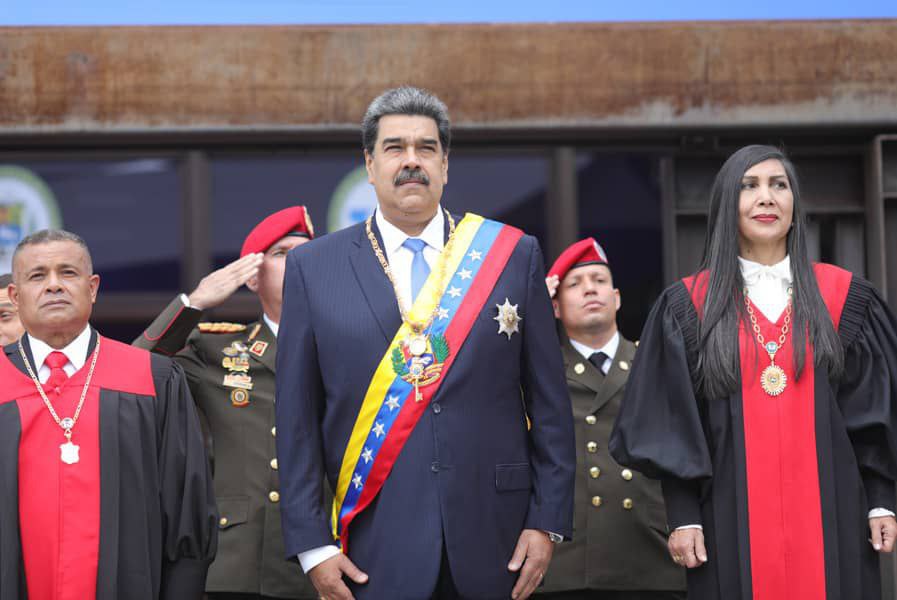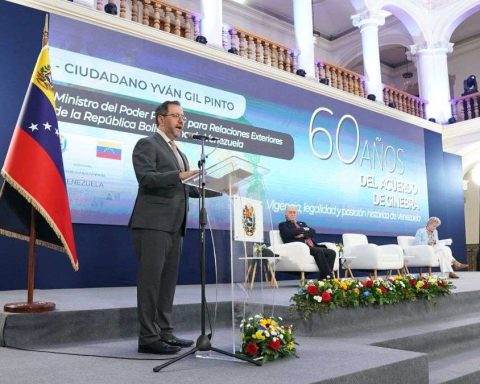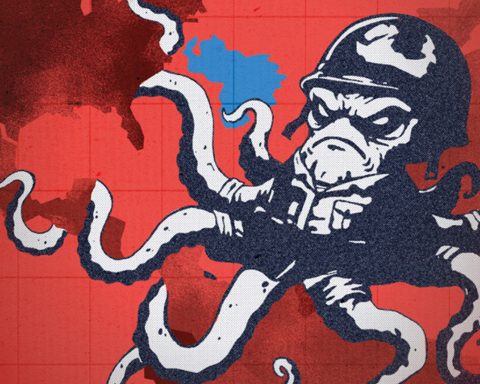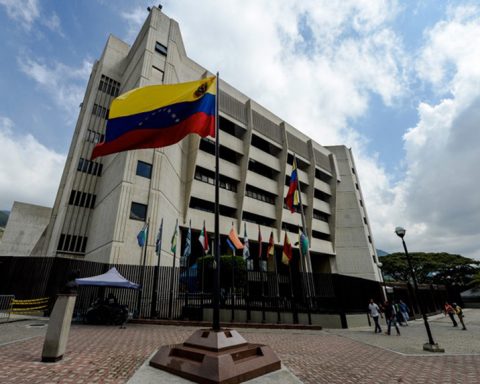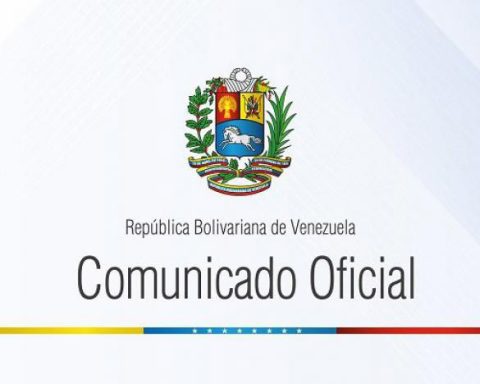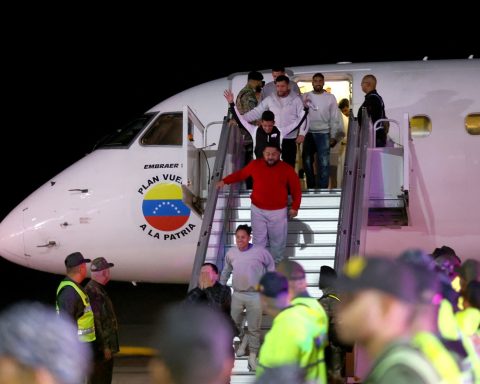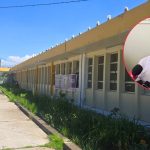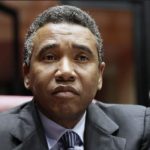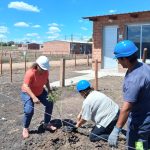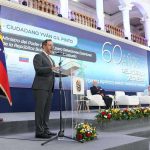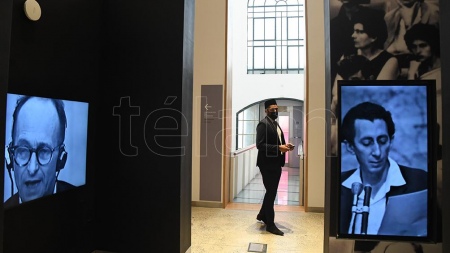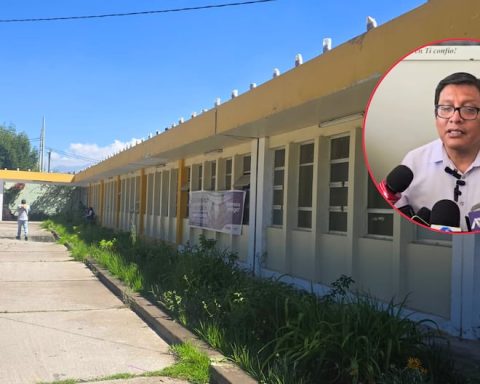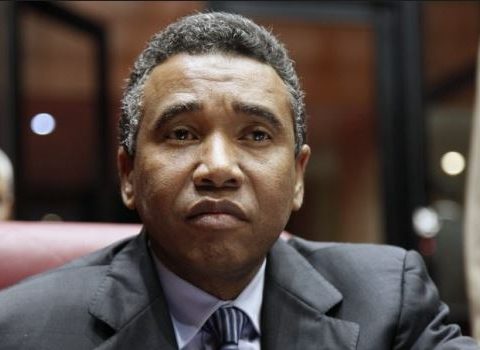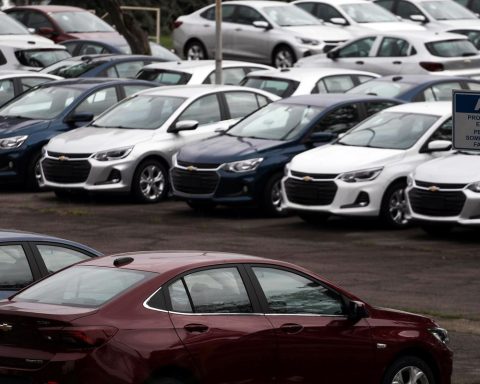The Venezuelan president, Nicolás Maduro, during the installation of the Opening of the Judicial Year 202 and 2022 accountability held in the Main Auditorium of the Supreme Court of Justice (TSJ), in Caracas, pointed out that Venezuela reaffirms the will to consolidate a Judicial Revolution in accordance with the demands of the people.
“16 months ago, as a result of permanent contact with the forces of People’s Power, I convened a Council of State and raised the need to take forceful steps for a revolution of justice in Venezuela,” said the President during the solemn opening session of Judicial Activities 2023.
The national president welcomed the diplomatic corps accredited in the country and the rest of the other public powers; Moral Republican made up of the Public Ministry, the Comptroller General of the Republic and the Ombudsman, the Legislative power represented by the National Assembly (AN) and the Electoral power, represented by the Venezuelan National Electoral Council (CNE), whose holders were present at the event.
In his speech he pointed out how, with the Bolivarian Revolution, the country ceased to be a State that systematically violates Human Rights to be a State of Justice and Law for its citizens.
«No process, from the social, political, sociopolitical, historical point of view; it is linear” and added that no process “is exempt from reversibilities, falls, setbacks, obstacles, entanglements and confusion” and for this reason “no one can think that what has been conquered is already conquered, and is immovable”, he stressed.
Maduro highlighted how the Venezuelan Judiciary was refounded through a popular constituent process on “new philosophical, theoretical, legal and constitutional bases”, which translated into “a new insurgent and social constitutionalism”.
Likewise, the first national president recognized the problems that the Bolivarian Revolution in more than two decades had to face “sometimes very serious,” he highlighted, which he led, through the Council of State; as required by the Constitution, to the call for the Judicial Revolution that the people demanded, after permanent contact with the Venezuelan popular movement.
He explained that said Judicial Revolution “has barely taken the first steps” and reiterated that “no process can be considered concluded,” explaining that this concept of constant revolutionary renewal is “very Bolivarian; very chavista ».
“Whoever becomes a judge or judge cannot be a coward, they have to be firm to face all the vicissitudes based on their conscience and the principles of humanity and based on the strength of our Constitution,” he stressed.
He insisted that in said judicial revolution the processes must be perfected, they can give more, they must give more” and assured that centuries of exclusion, injustice and oppression cannot be settled in just three decades of the Bolivarian Revolution.
“The immense historical debt of centuries of injustice, discrimination, oppression and exploitation will never be settled in just two decades of the Bolivarian revolution.”
It is for this reason, he explained, that he raised the issue “at the highest level of the State the proposal of a judicial revolution.”
Commitment to protect the rights of the people
The president referred to the recent visit to the country of the United Nations High Commissioner for Human Rights, the Austrian Volker Turkand explained that the UN representative “had the doors of the country open” and met with the heads of all the powers of the State, such as the attorney general, the directive of the TSJ, the NA directivewith whom there were long days of conversation.
«I become the spokesperson for the voice of the people to demand even more from the Public Powers based on social happiness and justice, which is the queen of republican virtues».
The Head of State recalled that, during the Turk’s visit to Mirafloreswas able to point out with facts how “Venezuela went from a State whose policy was the continuous violation of human rights to a State under construction whose policy is justice, respect for the supremacy of the Constitution and the rights of the people.”
